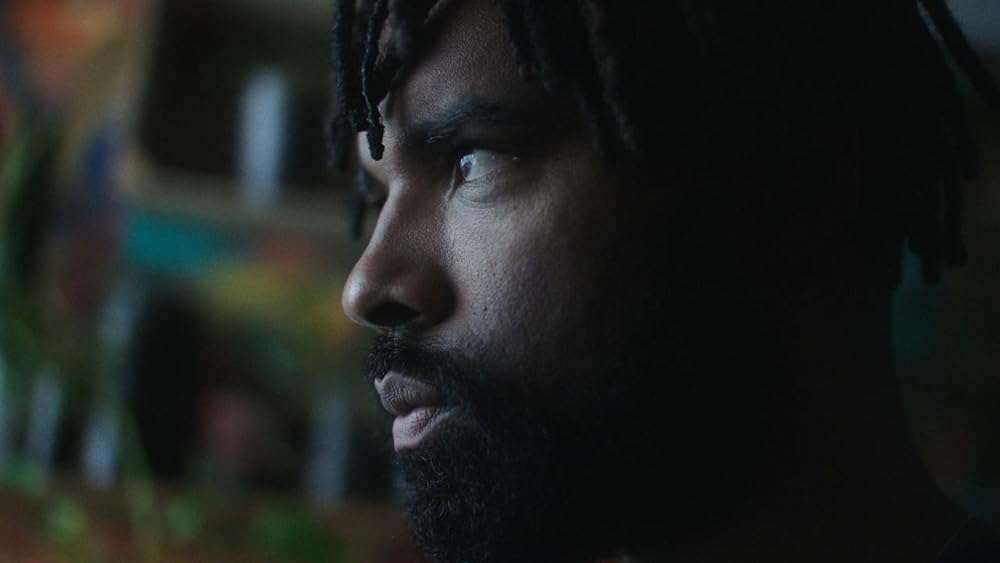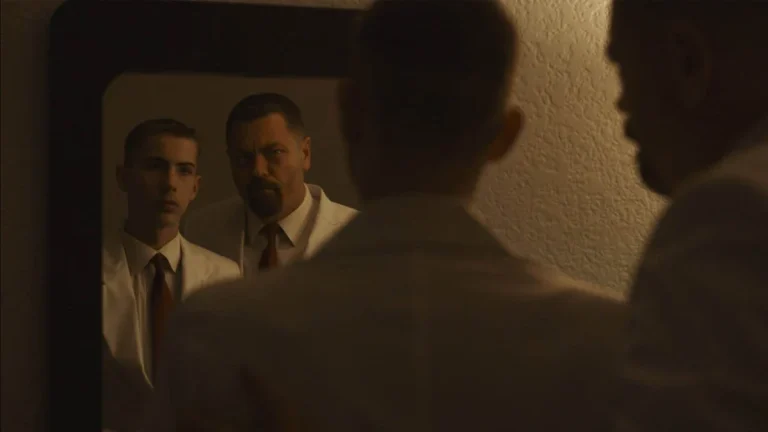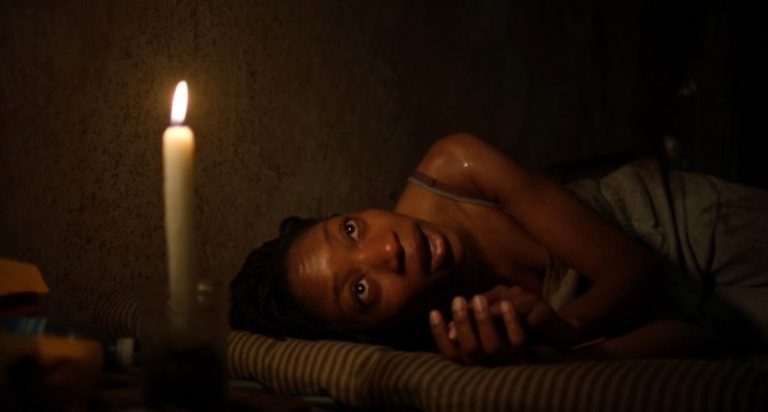Intimacy is a double-edged sword – don’t you agree? In this day and age of social media dating, it’s common to encounter numerous people with varying requirements. For those who want love, they would find a soul to share their life with. For those who would want to be intimate just for a day, a night full of pleasure with no commitments awaits. What’s more, there are friends with benefits to help us explore. Unfortunately, there are a few opportunists in this culture who would do everything to ruin someone else’s life. Director M.H. Murray’s “I Don’t Know Who You Are” tells you everything about it in a profoundly revelatory fashion.
Benjamin is an adult man living alone in Toronto with a cat. Everything appears ideal from a distance: a lovely home, a devoted pet, a love of music, and food on hand. Still, Benjamin can’t shake an internal uproar that’s been plaguing his thoughts and emotions. It clearly leans towards a man’s cupid sensibilities, but I wouldn’t call it a grey region. Benjamin yearns for love and hopes it will have a deeper significance in his life.
A recent breakup has stirred up his emotions and made him in need of attention, but nothing beyond that needs medical attention. Conversely, he thinks he’s found the perfect companion in a man named Malcolm, whom he’s seeing at the moment. But Benjamin is frustrated since the closeness process seems to be one-sided. As he struggles to make sense of his ideas amidst a night of intoxication and disorientation, a horrific act of sexual abuse unfolds, forever changing his perspective.
What elevates “I Don’t Know Who You Are” is the initiative taken by the crew to educate the viewers through their intuitive screenplay and writing. The narrative progression gives an idea that, at times, it’s more of a health awareness campaign, which doesn’t seem to be bad after all. For instance, the doctor who examines Benjamin informs him of the procedure of the HIV test kit before testing him. Here, each step of the test is explained in detail while the camera focuses on the words uttered by the doctor throughout the shot. Additionally, the doctor who prescribes Post-Exposure Prophylaxis (PEP) to Benjamin employs a similar tone and intuition when explaining the medication’s function and the duration of treatment. The dialogue is presented in a precise and relaxing manner for people from all walks of life to receive the message.
Let’s not forget how the director subtly incorporates the character’s declining mental state into the film’s central theme. On several occasions, viewers would be able to identify Benjamin’s anxiety and trauma as a pre-existing condition. For instance, Benjamin constantly bites his fingers whenever he is confused, which gets noticed by his ex-boyfriend, Oscar. Even more so, Oscar’s words, “You still do that,” demonstrate its depth. There are also glimpses of Benjamin being on the edge of making dangerous decisions but doesn’t end up making it. Be it about harming himself or others for that matter. In order to fight against his depression, Benjamin turns to his hobbies, which include playing numerous instruments and creating art. It seems like Benjamin finds solace and escape from his own suffering through these interests.

The country’s inefficient healthcare system is also highlighted within the same framework. Through Benjamin’s painful experience, the director questions deceptive elements within the healthcare system. The main question is, “If full PEP medication is the only way to prevent the transmission of HIV at an early stage, then why isn’t it covered by the government?”
In terms of interpersonal dynamics, the film clarifies expectations as well as the support system derived from connections. The decision-making process is subjective, yet this aspect is thoroughly examined in Benjamin’s quest for help. In the film, Benjamin’s close friend Ariel seems to be the guardian angel in his life. Despite her humorous trait, Ariel offers him advice and solutions to help him navigate difficult situations. In fact, Ariel is the one who suggests getting him tested in the first place. Ariel immediately offers him all the money she has when he needs it so he can receive his PEP prescription on time.
However, the film also takes into account the drawbacks of seeking help from others for financial assistance. Indifference in opinions, misjudgments, and theft also arrive unanswered along the way. Here, the filmmaker provides a rundown of how to discover genuine friends in times of need and minimize expectations. Perhaps it was Benjamin’s desperation that drove him to go above and beyond decency to save himself from misery. You might be wondering by now if this is a morally charged film, and I agree with that notion.
Canadian musician Mark Clennon, who plays Benjamin, brings forth the musical element in the film as an important factor. Clennon’s musical background would inevitably be emphasized, given that he is one of the film’s screenwriters. A scene of Benjamin singing on the stage leaves two major impressions. One, the power of music that elevates his inner turmoil could be felt indefinitely. Second, Benjamin’s range of talents served as a beacon of hope, encouraging him to face the day courageously.
Imagine a calmer, more subdued version of “Uncut Gems,” with an emphasis on the importance of listening to your inner instinct. “I Don’t Know Who You Are” serves as a cautionary tale on how difficult it is to know a person’s true nature. A person’s outward look and presentation might not match your mental impression of them; in this case, it’s all a mystery. You need to unfold what’s hidden inside through understanding and appropriate discussions. The impact of Benjamin’s trip is undeniably significant and impactful, particularly for an indie film done on a shoestring budget. Moreover, this movie has the potential to be an excellent choice for individuals who are transitioning into adulthood and are interested in gaining knowledge about sexuality education.


![Paulie Go! [2022] Review – An Incredibly Entertaining Coming-of-Age Comedy](https://79468c92.delivery.rocketcdn.me/wp-content/uploads/2022/05/Paulie-Go-2022-768x431.jpg)


![Logan [2017]: A Life Lived Well](https://79468c92.delivery.rocketcdn.me/wp-content/uploads/2017/04/Logan-768x432.jpg)
![Parasite (Gisaengchung) [2019] Review – A blood sucking drama on class divide](https://79468c92.delivery.rocketcdn.me/wp-content/uploads/2019/09/Parasite-highonfilms2-768x321.jpg)